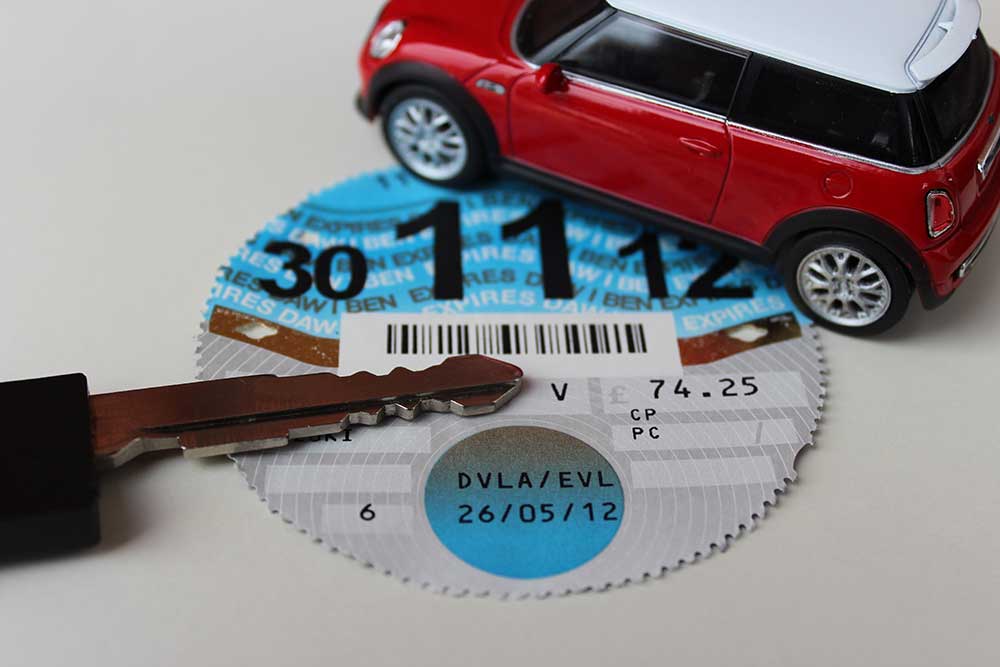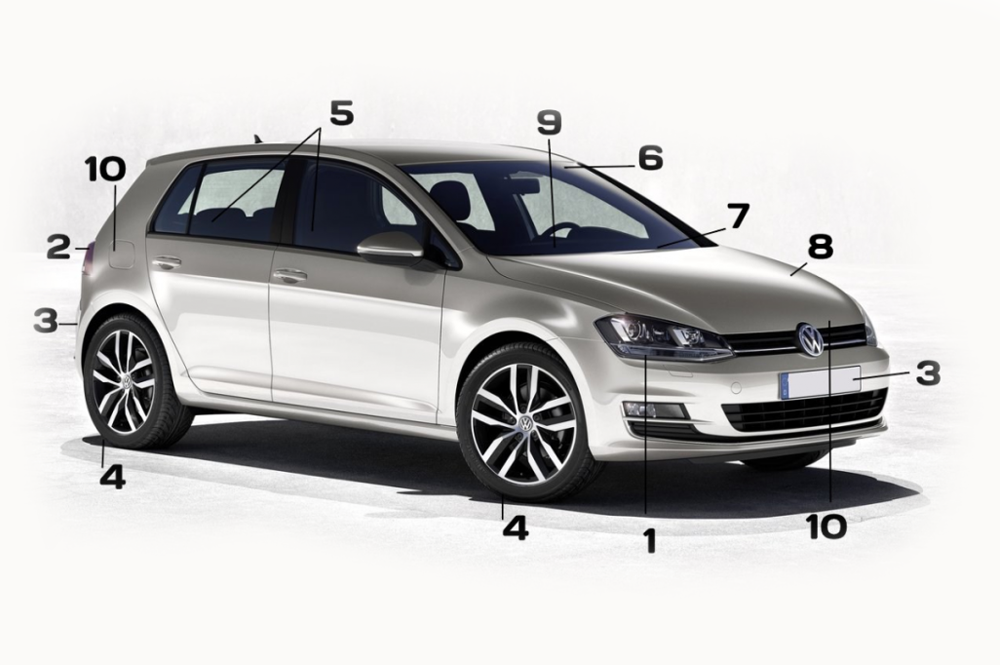Car tax in the UK – Full Factsheet


The vast majority of vehicles on UK roads are subject to Vehicle Excise Duty (VED, also known as road fund license). All vehicles registered in the United Kingdom that are driven or stored on a public road are required to pay car tax. The car you choose might have a significant impact on your tax bill.
Furthermore, purchasing a low-tax car may increase the value of the vehicle because it will have fewer operating costs in the future. Off-road vehicles must be taxed or have a Statutory Off-Road Notification (SORN).
The vehicle excise duty is computed using the car’s CO2 emissions in the first year of registration and the car’s list price in years 2 through 7. In years 2 to 7, a higher rate of VED is due if the car’s list price exceeds £40,000. The list price comprises the vehicle’s purchase price as well as any non-standard accessories that are installed when the vehicle is first registered. This includes the following:
It excludes the following:
Vehicle Excise Duty (VED), also known as ‘road tax,’ isn’t the most straightforward component of car ownership to understand. The parameters that decide how much VED drivers pay have been cut and modified a lot over the years, which is understandable given that the fee brings in roughly £5 billion every year for the Treasury. The 2021/22 rates will be increased in pace with inflation. In addition, the tax credit for cars valued more than £40,000 has been eliminated for electric vehicles.
Changes to the road tax system, except inflationary increases, are not retroactively implemented, therefore the system in place when a new vehicle was first acquired will remain in place for as long as it is on the road – however annual rates are subject to inflationary increases.
If you’re buying a new vehicle, you’ll have to pay road tax under a system that went into effect on April 1, 2017, but was recently amended for April 2021 and beyond.
The first thing to understand about the present road tax system in the United Kingdom is that it is divided into two main rates. For a new car’s first year on the road, there is a flat cost that varies depending on how much carbon dioxide it emits. After a year on the road, a second system takes effect, which is unaffected by CO2 emissions and is based on the car’s original purchase price.
It’s interesting to note that the first and second-year rates are influenced by whether the vehicle is powered by electricity, conventional fuel, or a combination of both.
The first year of road tax is included in the on-the-road (OTR) price of a vehicle and is calculated depending on its CO2 emissions. It ranges from £0 for zero-emission vehicles to £2,245 for vehicles emitting 255 g/kg or more.
Previously, nearly all new diesel vehicles had a one-band higher first-year rate because the Treasury opted to raise the first-year rate for diesel that did not satisfy “the latest emission criteria” – known as RDE2 in technical terms. However, in January 2021, it became a legal obligation for new diesel cars to satisfy those standards.
In any case, being in a higher first-year tax band isn’t a big deal: many customers will simply have to pay a small one-time fee, which will be factored into the car’s on-the-road pricing.
The yearly flat rate of road tax is now £155 (increased from £150 in the fiscal year 2020/2021). Alternatively powered vehicles (hybrids, mild hybrids, and plug-in hybrids) receive a £10 annual rebate, bringing the annual fee to £145 (up from £140 in the previous fiscal year).
A £335 annual extra (increased from £325 in the previous financial year) is applied to cars that cost £40,000 or more (after options) and lasts for five years. This begins after the first year’s CO2-based charge, so you’ll be responsible for the supplement from years two to six of the vehicle’s life. If your vehicle costs more than £40,000, you’ll have to pay £490 every year (£480 for hybrids) for five years. Following that, the annual road tax is reduced to £155 (£145 for AFVs). The lone exception is fully electric vehicles, which are exempt from this levy as well as the first-year and annual road tax.
Note that if you bargain a car worth more than £40,000 down to less than £40,000, you’ll still have to pay the premium because it’s based on the car’s cost for tax purposes. This fee is effectively unavoidable because the £40,000 estimate includes all options and trim levels.
It’s important to remember that you can pay your taxes monthly rather than annually. Due to interest, this will cost you slightly more, but it is a good alternative for individuals who wish to spread their payments out. It will also keep you from forgetting to pay your road tax because the DVLA will receive payments automatically each month. If you sell the car or it’s written off, the DVLA should terminate the direct debit automatically, but it’s worth double-checking in case this happens
If all of these changes seem overwhelming, remember that a car that has previously been registered and is subject to yearly road tax under a previous tax structure will be unaffected. A car’s road tax system does not alter once it is on the road, except for inflationary hikes.
Fortunately, paying for your VED is a simple procedure. The simplest way to accomplish this is to go to Gov.’Tax UK’s your vehicle’ page, where you can follow a simple step-by-step process, most likely using a reference number from a V11 reminder letter you received from the DVLA.
If you drive a car that was registered before March 1, 2001, you may be eligible for a different type of road tax. This one is easily divided into two parts and is dependant on the engine capacity of your vehicle:
£270 per year for cars with a capacity of exceeding 1,549cc.
£165 a year for cars under 1,549cc.
All you need is the car’s registration number, and it will provide the make and colour of the vehicle, as well as information on the engine capacity and other vehicle statistics. If you have the V5C registration certificate (log book) for the car, you can enter the 11-digit reference number to see the vehicle’s tax rates. This is true for any vehicle that has been registered and is currently on the road.
Despite appearances, determining how much tax your automobile owes is very straightforward – it all depends on when your car was registered.
It’s important to note that the tax system does not change retroactively; if your car costs £30 to tax now, it won’t cost £300 when the next budget is announced, which is a comfort. However, it may rise somewhat following inflation, which is now at 2%. In other words, it may increase by a few pounds every year, but not by hundreds.
It’s simple: the existing system is meant to be somewhat gentle on cars that emit few CO2s while being harsh on those that emit a lot. Thankfully, there is still a chance to avoid paying road tax entirely by purchasing an electric vehicle. In some ways, you’ll be a trendsetter: electric cars still prove to be very useful if you have a charging station at home. Not only is it handier, but you can also charge the car while sleeping, taking advantage of cheaper off-peak electricity rates.
While electric vehicles are still uncommon, sales are rapidly increasing, and all of the car manufacturers now offer at least one electric model. New petrol and diesel car sales will be prohibited in the United Kingdom by 2030.

